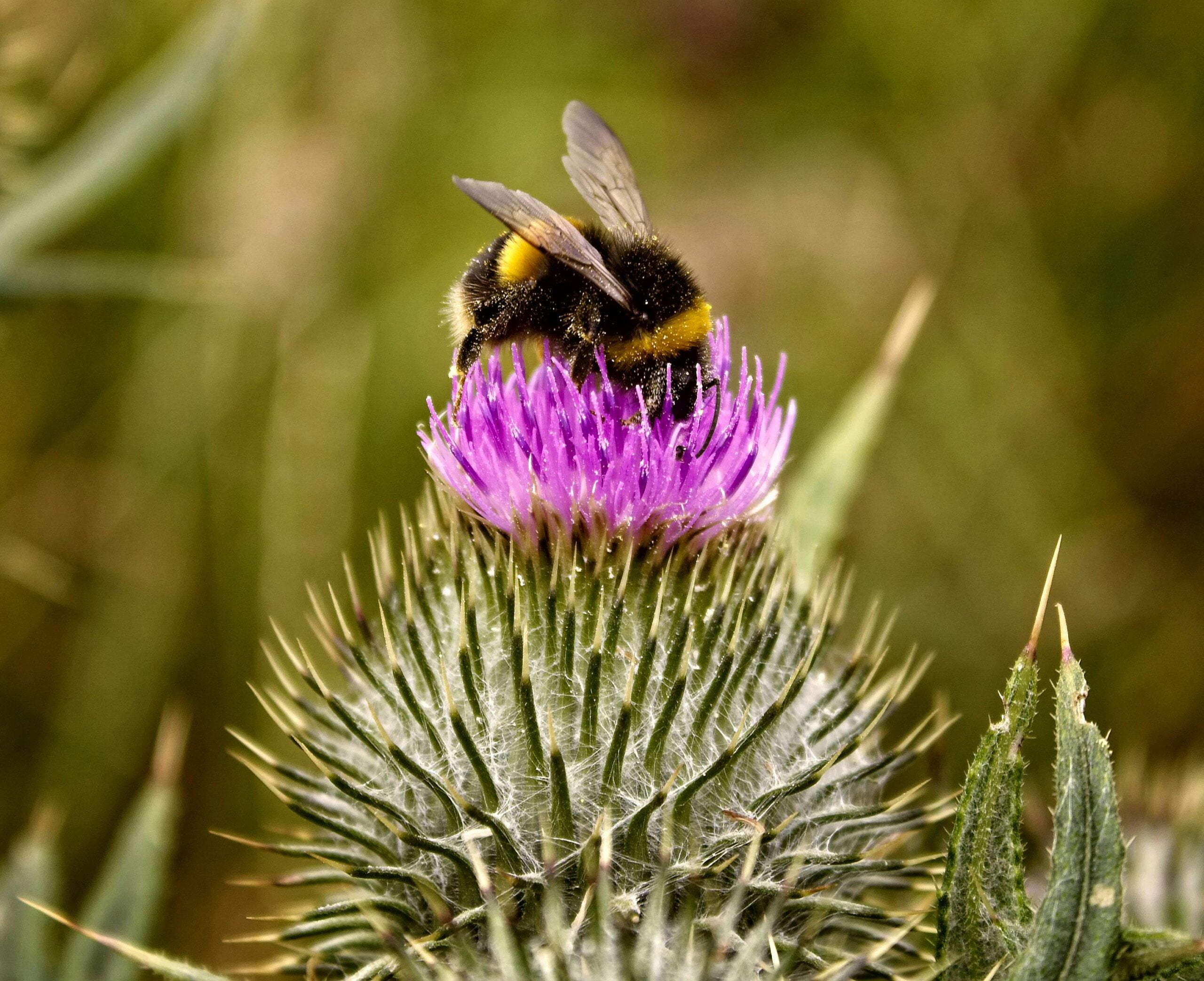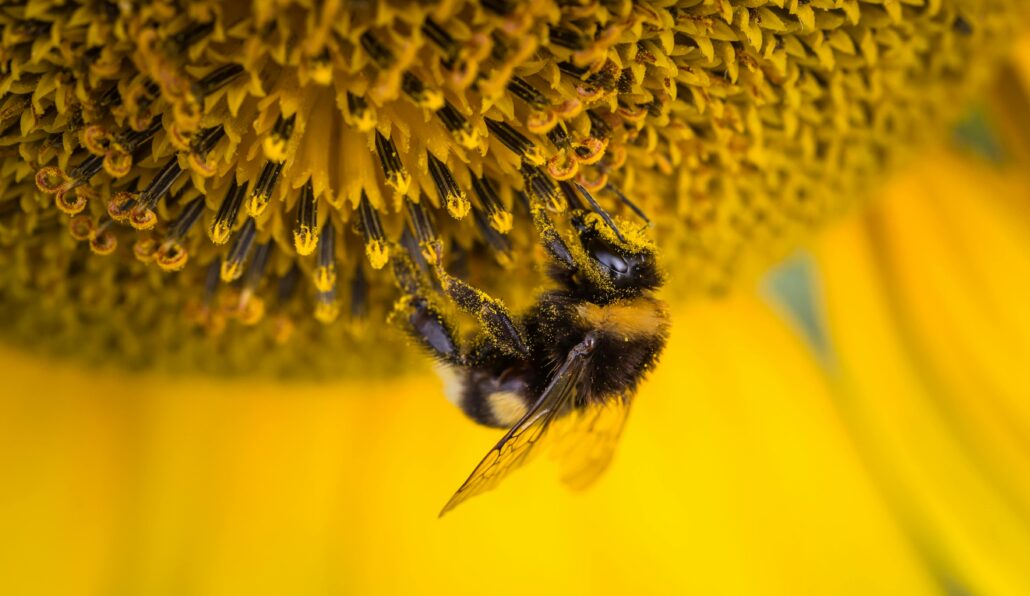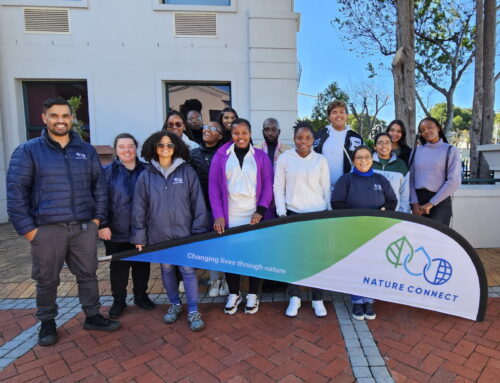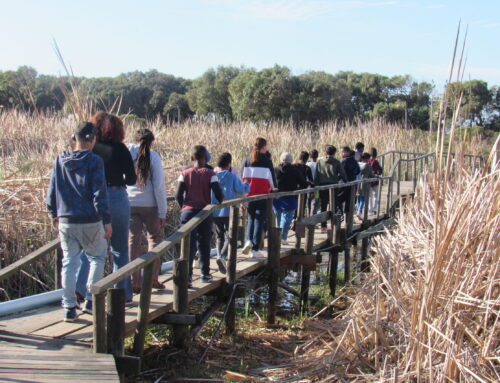Written by Luke Foster, intern: Zoarvlei Section
Today, on World Bee Day (20 May 2024), let’s take a moment to appreciate how bees enrich our lives in countless ways, often without us realising their crucial contributions to our world.
Bees play an important role in ecosystems worldwide, acting as nature’s most efficient pollinators. Their foraging efforts enable the reproduction of flowering plants, including many of the fruits, vegetables, and nuts that form the cornerstone of human diets. It’s estimated that one-third of the food we consume relies on bee pollination. Beyond agriculture, bees also contribute to the diversity and resilience of natural habitats, supporting the reproduction of countless plant species and providing essential resources for other wildlife. Their role in pollination not only sustains ecosystems but also bolsters global biodiversity and helps mitigate the impacts of climate change. Maybe it’s Bees that run the world.
Bees are not only environmental stewards but also economic powerhouses, contributing billions of dollars to global economies annually. Their pollination services are invaluable to agriculture, enhancing crop yields and quality for numerous crops like almonds, apples, and berries. Beekeeping industries thrive on the production of honey, beeswax, royal jelly, and propolis, generating income for beekeepers and supporting local economies worldwide.
Despite their crucial role, bee populations face many threats that jeopardise their survival. Habitat loss due to urbanisation, agricultural expansion, and deforestation disrupts bee nesting sites and foraging grounds, diminishing their available resources. Pesticide use, particularly neonicotinoids, poses a significant risk to bee health by impairing their navigation, communication, and immune systems. Climate change exacerbates these challenges, altering floral bloom times and weather patterns, thereby disrupting bee foraging schedules and weakening their resilience to stressors. Furthermore, the spread of pests and diseases, such as varroa mites and fungal infections, exacts a heavy toll on bee colonies, leading to declines in both managed and wild populations. Without concerted efforts to address these threats and implement sustainable solutions, bee populations worldwide remain at risk, with far-reaching consequences for ecosystems and food security alike.
Bees have long captured the imagination of artists, poets, and storytellers, symbolising industriousness, community, and the connections found within nature. Throughout history, bees have been revered in cultures worldwide, depicted in ancient art, mythology, and folklore and have left a lasting mark on human culture.
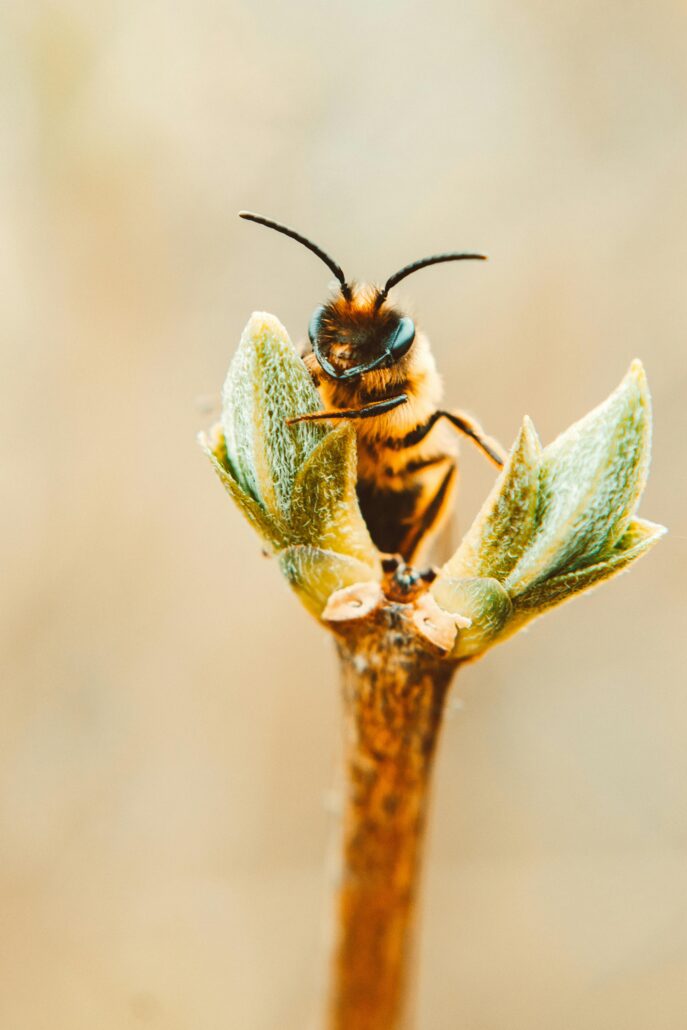
The diversity of bee species is surprising, with over 20,000 known species worldwide, each uniquely adapted to its environment and ecological niche. While honeybees and bumblebees often steal the spotlight, countless other bee species play vital roles in pollination and ecosystem health. From the tiny sweat bees that pollinate small flowers, to leafcutter bees who cut leaves to make nursery chambers for their eggs.
The Cape Honeybee’s natural habitat is the Fynbos biome, making it a key player in the restoration efforts of the endangered fynbos vegetation in Cape Town. As part of these endeavours, the Nature Care Fund of Nature Connect oversees conservation sites where these little bees play a crucial role in ecological restoration through their pollination activities. By foraging on native fynbos plants and facilitating their reproduction, Cape Honeybees contribute directly to the regeneration of degraded landscapes and the preservation of biodiversity in this unique and threatened ecosystem.
The fate of bees, like all insects, hangs in the balance. With continued habitat loss, pesticide use, and climate change threatening bee populations, urgent action is needed to safeguard their survival. By prioritising bee conservation and sustainable agriculture, we can shape a future where bees thrive, ensuring a healthy and vibrant planet for the future.

